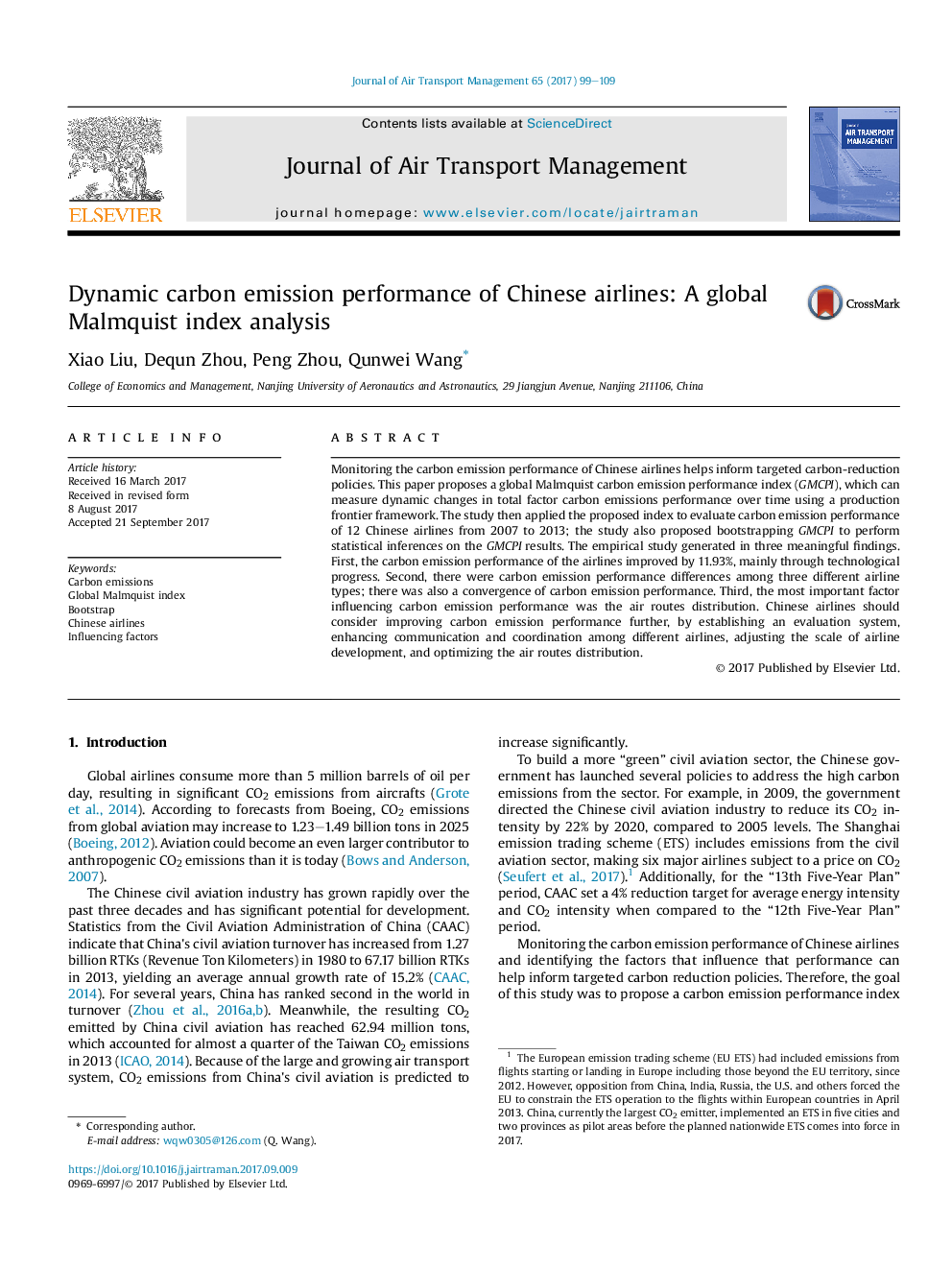| Article ID | Journal | Published Year | Pages | File Type |
|---|---|---|---|---|
| 5111520 | Journal of Air Transport Management | 2017 | 11 Pages |
Abstract
Monitoring the carbon emission performance of Chinese airlines helps inform targeted carbon-reduction policies. This paper proposes a global Malmquist carbon emission performance index (GMCPI), which can measure dynamic changes in total factor carbon emissions performance over time using a production frontier framework. The study then applied the proposed index to evaluate carbon emission performance of 12 Chinese airlines from 2007 to 2013; the study also proposed bootstrapping GMCPI to perform statistical inferences on the GMCPI results. The empirical study generated in three meaningful findings. First, the carbon emission performance of the airlines improved by 11.93%, mainly through technological progress. Second, there were carbon emission performance differences among three different airline types; there was also a convergence of carbon emission performance. Third, the most important factor influencing carbon emission performance was the air routes distribution. Chinese airlines should consider improving carbon emission performance further, by establishing an evaluation system, enhancing communication and coordination among different airlines, adjusting the scale of airline development, and optimizing the air routes distribution.
Related Topics
Social Sciences and Humanities
Business, Management and Accounting
Strategy and Management
Authors
Xiao Liu, Dequn Zhou, Peng Zhou, Qunwei Wang,
